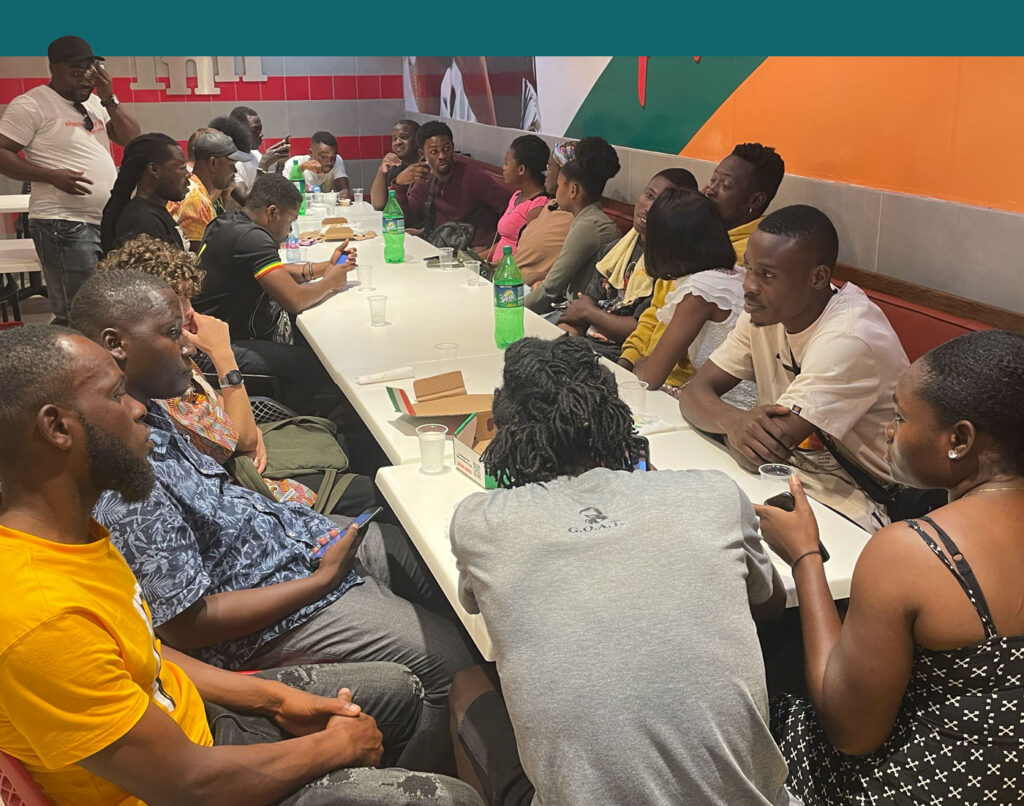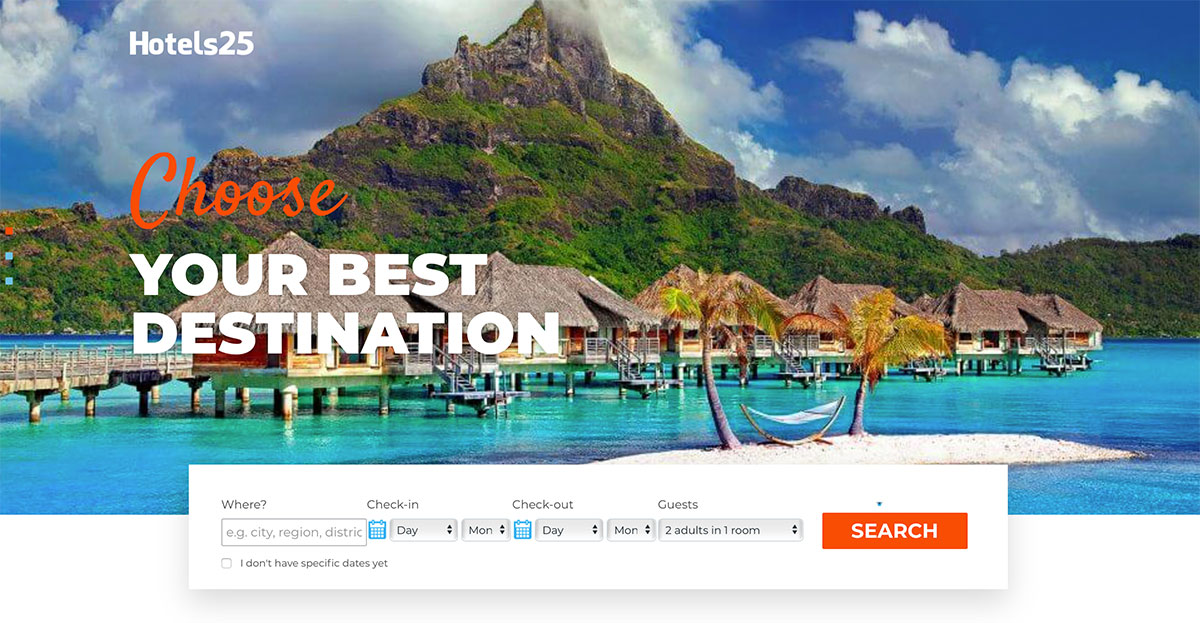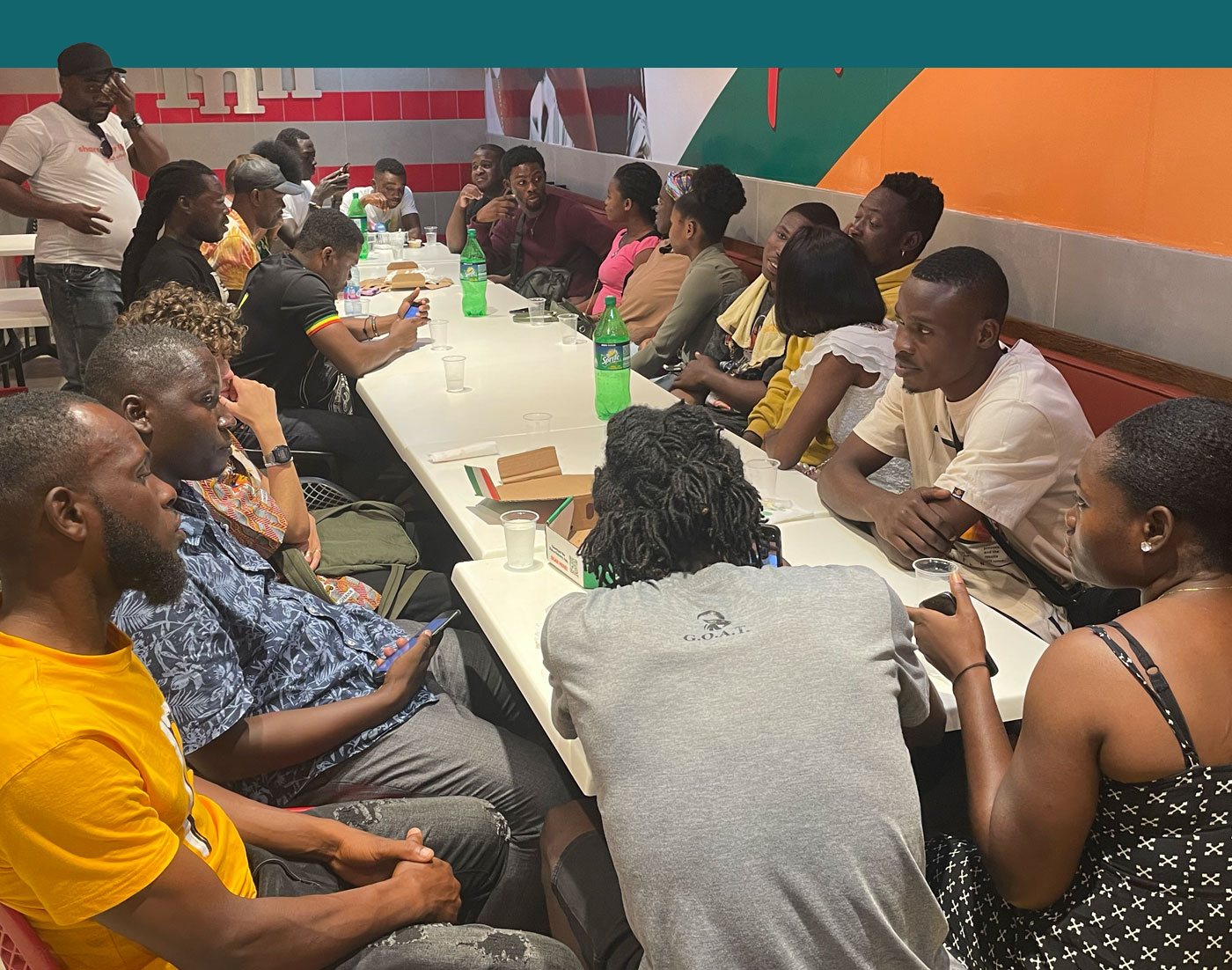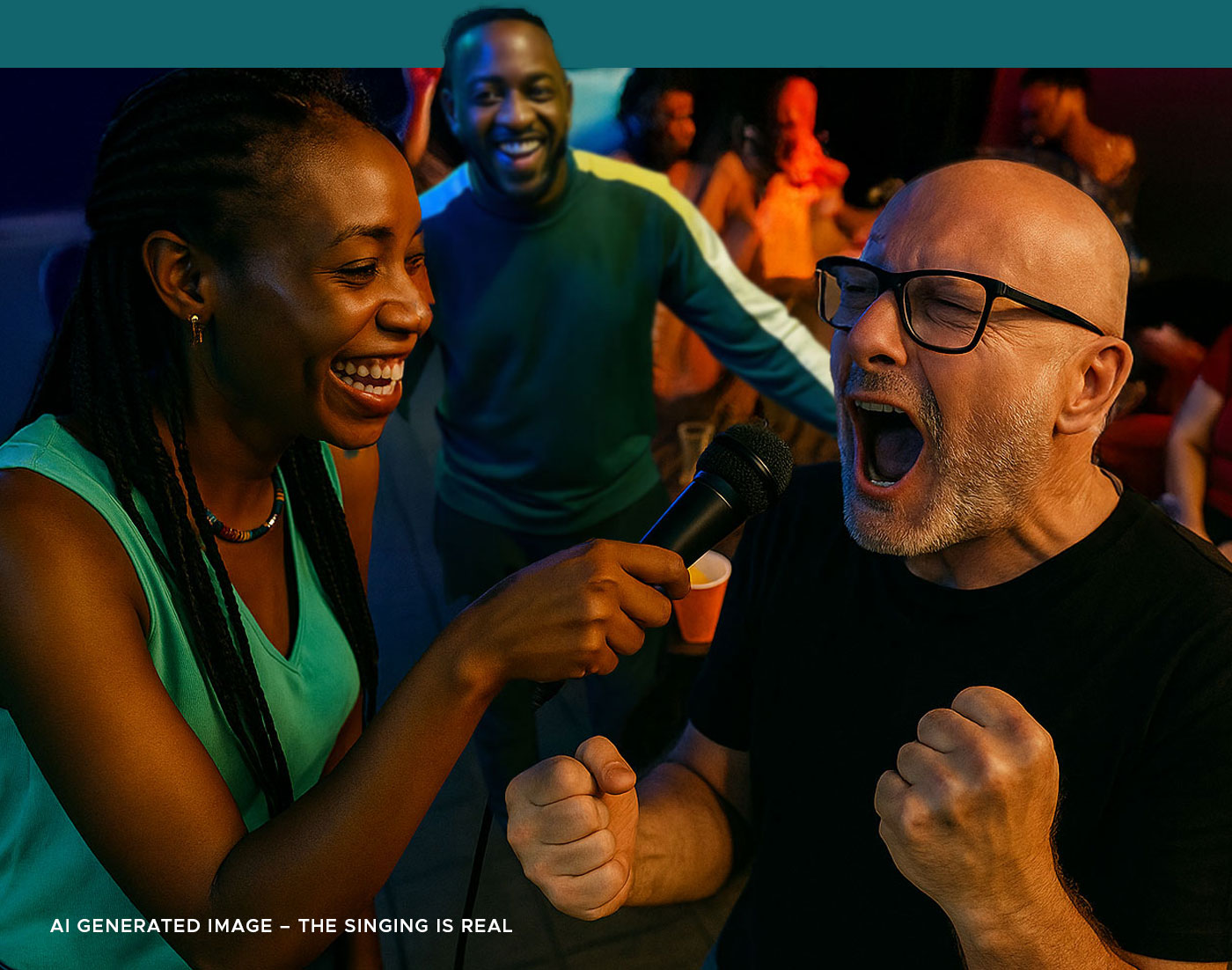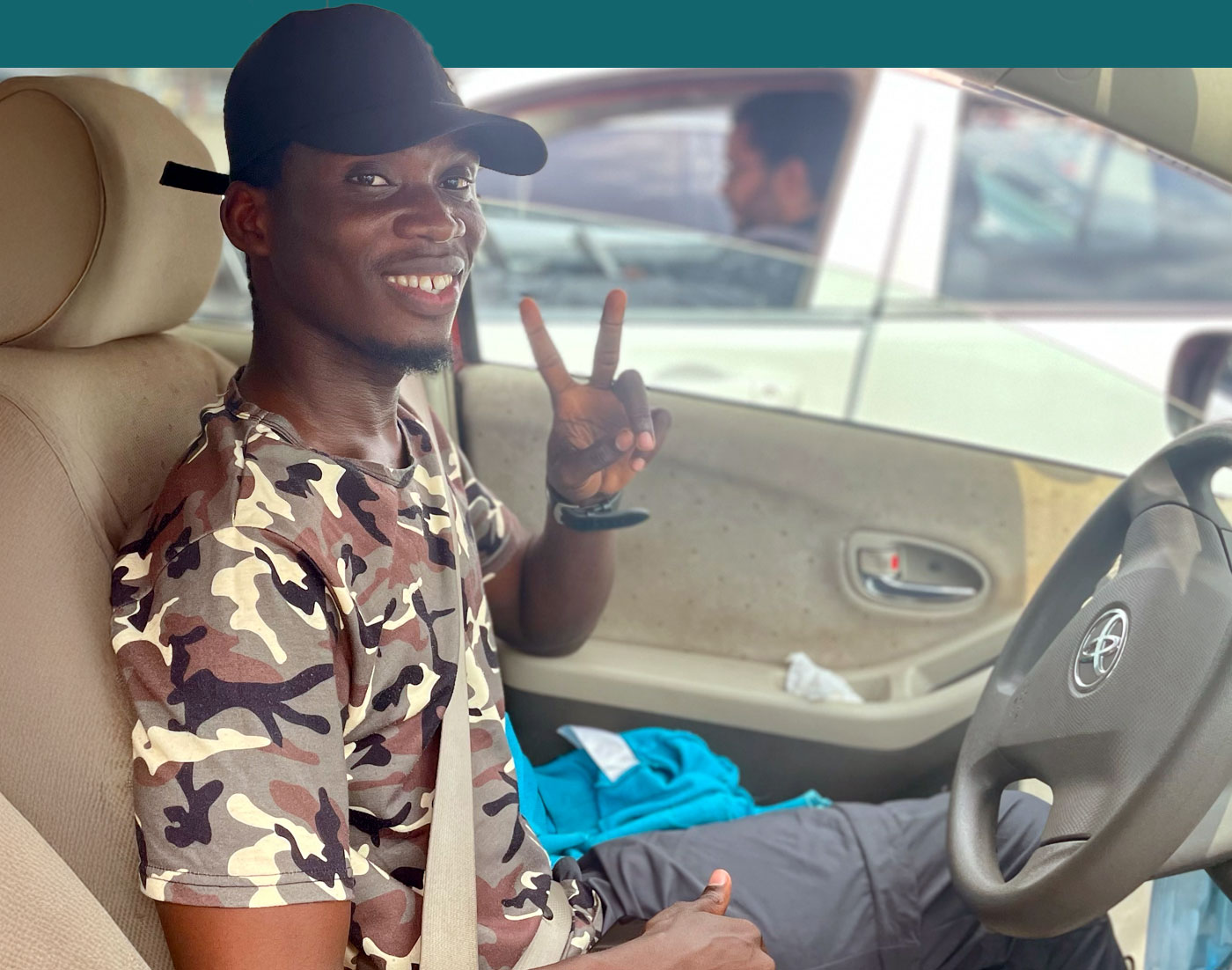Getting Lost (Again) in Accra
If you’ve ever felt completely lost while trying to meet a stranger from the internet… welcome to my life in Accra.
This is the third and final part of my time in Ghana’s buzzing capital. And trust me, Accra still had plenty of surprises left for me.
In this episode, we dig deeper into everyday life here. From confusing Couchsurfing meetups and unpredictable traffic to conversations about Ghana’s famously large government – and why everyone seems to be talking about ministers all the time.
We’ll also get into the cost of living here, the big income gap, and what daily life actually looks like for Ghanaians. Plus, The Vagabond Hotline is back – and this time, we’re talking about the strangest things you’ve ever eaten while traveling. Spoiler alert: fermented horse milk, live squid, and even a real Pumba from The Lion King are on the menu.
It’s going to be a ride full of food, facts, and a few awkward laughs along the way.
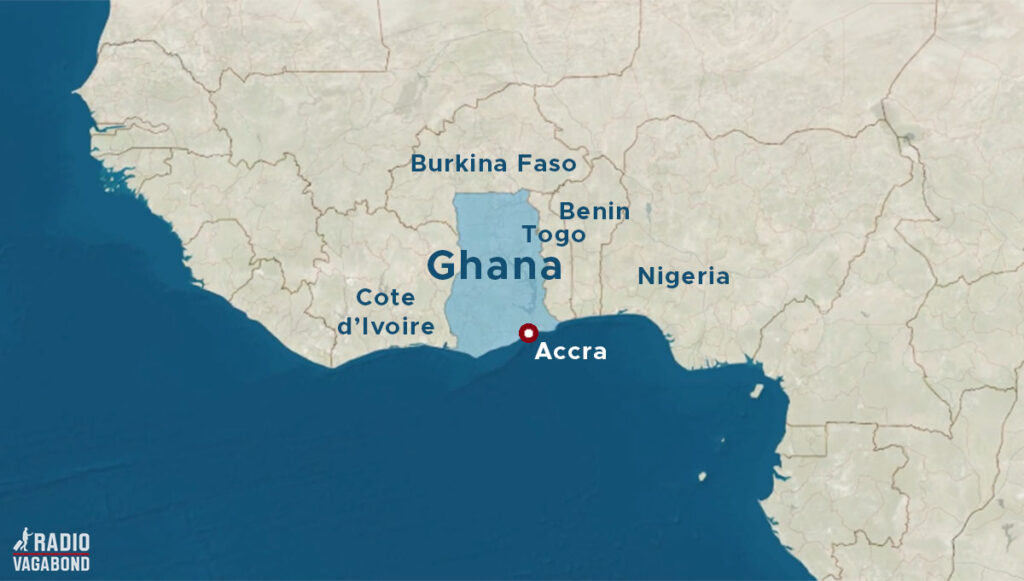
Too Many Ministers?
One thing Cynthia and I kept hearing from Uber drivers in Accra – apart from complaints about the traffic – was about Ghana’s crowded government.
As we were walking through the peaceful Botanical Garden, surrounded by tropical trees and the sounds of birds, we got into a conversation about what we’d been hearing.
Apparently, at one point Ghana had over a hundred ministers – not counting deputy ministers. So many, in fact, that I started joking about whether there might be a Minister of Mid-Morning Snacks or a Deputy Minister of Umbrella Coordination for Unexpected Rain Showers.
Honestly, if you stayed in Accra long enough, you might get appointed Minister of Sidewalk Shade Strategy.
But all jokes aside, this is a real topic of conversation here. Ghanaians talk openly about the feeling that government is bloated, and that too much money goes toward administrative salaries rather than actual improvements for the people.
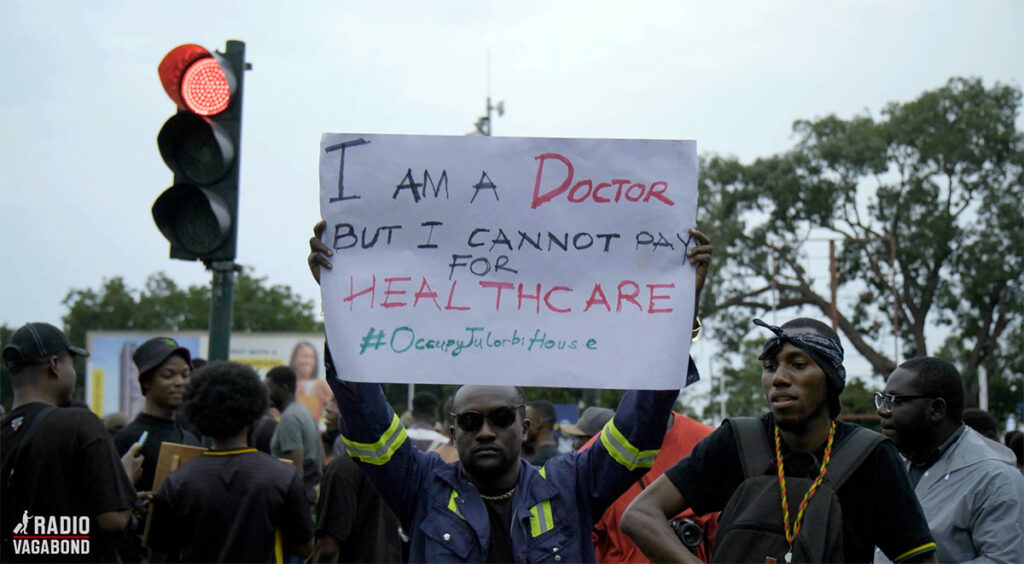
Living Standards and Income Gaps
When we did our “Facts About Where We Are” earlier, I mentioned that Ghana is classified as a lower-middle-income country. It’s not among the poorest, but it’s not rich either.
We had a few interesting conversations about this with Uber drivers on our way to the Botanical Garden. One driver mentioned that a schoolteacher earns around $1,500 USD per year. That figure seemed low, so I did some research – and he wasn’t wrong.
According to PayScale, the average annual salary for a high school teacher in Ghana is just over 20,000 Ghanaian cedis, which is about $1,500 USD a year.
Another thing that surprised me: one of our drivers said Ghana is one of the most expensive countries in Africa. Again, I checked – and according to the Cost-of-Living Index from Numbeo, Ghana ranks 6th on the continent for high living costs. Rent is relatively affordable compared to places like South Africa, but groceries are over 20% more expensive, and even restaurant prices are a bit higher.
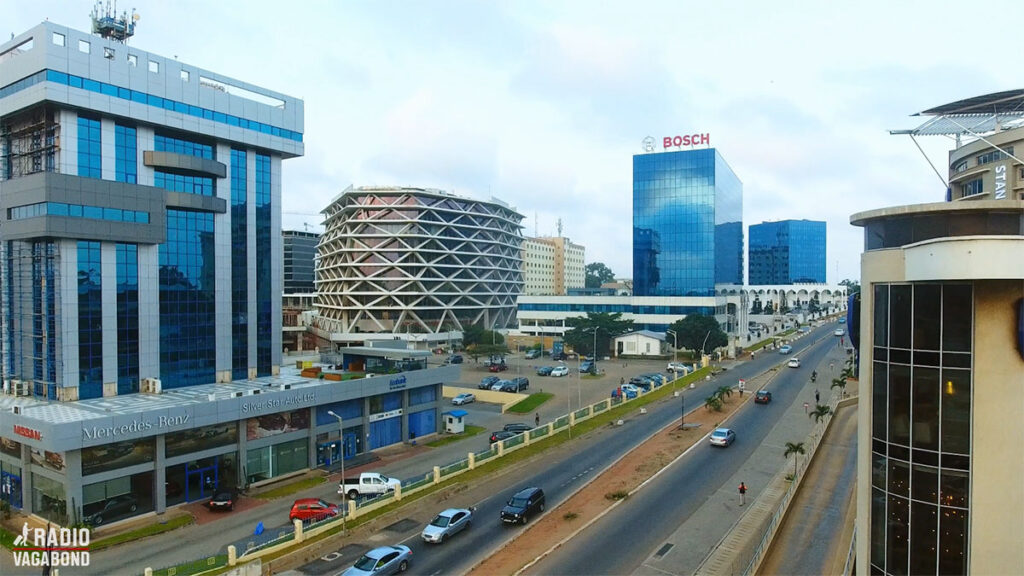
So, while wages are low, basic goods and food are not cheap. That creates a tough reality for many.
And there’s another important point to mention – the income gap.
Like many places, Ghana has a big difference between high and low salaries. A public-school teacher might earn about $125 a month, while someone working in banking, telecom, oil, or government can earn 10 to 20 times that – or even more.
There’s a growing middle class, especially in big cities like Accra. But still, a lot of people are working hard just to make ends meet.
Ghana is a warm and welcoming country, full of energy and smiles. But behind that vibrancy, there’s a tough economic reality for many people.
FUN FACTS ABOUT GHANA
Ghana was the first country in sub-Saharan Africa to gain independence in 1957.
Kente cloth, one of Africa’s most iconic fabrics, originated here. Each pattern has specific meanings tied to history and philosophy.
The Greenwich Meridian passes through Ghana – and locals joke that GMT here means “Ghana Maybe Time” because people are often fashionably late.
WHO ARE YOU?
Please spend five minutes taking a the survey – tell me a bit about who you are and what you would like more or less on here on The Radio Vagabond.
Things That Are Surprisingly Hard to Find
Another thing that caught my attention: despite Ghana’s modernization, there are still a few things you won’t easily find.
For example, street addresses can be confusing. Many areas in Accra didn’t have formal addresses until recently, and even now, locals often navigate by landmarks rather than street names or numbers.
When I asked for directions, I would often get something like, “Turn left at the big mango tree, then right after the blue kiosk.”
And while big shopping malls and supermarkets exist, most people still buy everyday items at local markets or from roadside stalls.
This mix of old and new is part of what makes Accra so fascinating to explore.
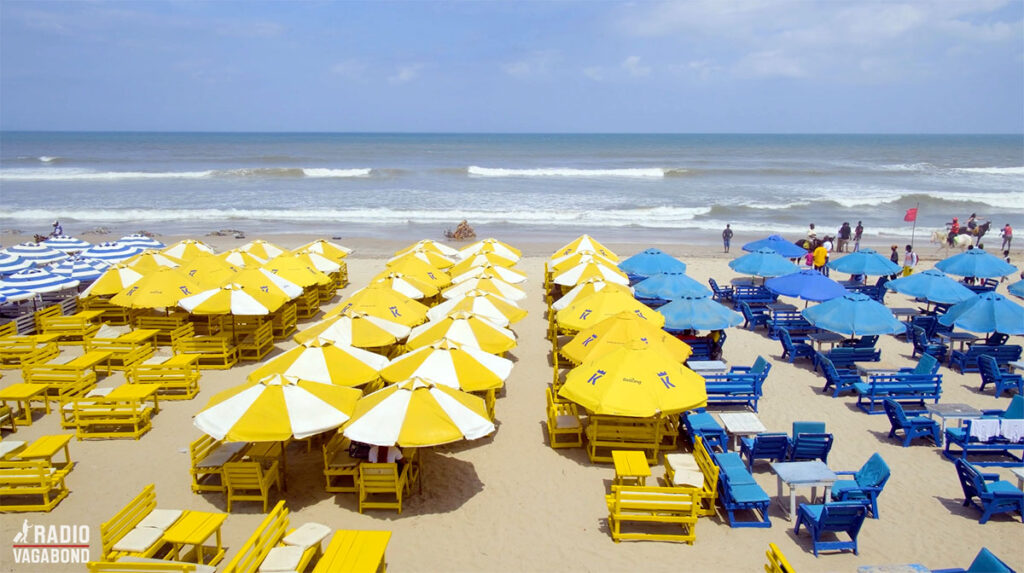
Hidden Gems in Accra
Accra has its fair share of tourist spots – but if you scratch below the surface, you’ll find some real hidden gems.
One place I loved was Legon Botanical Gardens. It’s a quiet escape from the chaotic city, full of tropical trees, rope bridges, and bird sounds. Perfect for a relaxed afternoon or even a picnic.
We spent time here walking around, soaking up the calm, and chatting about life in Ghana – and life on the road. Another hidden treasure is the arts and crafts scene.
In places like the Arts Centre for National Culture, you’ll find incredible handcrafted goods, from colourful fabrics to wood carvings, paintings, and jewellery. It’s a great place to pick up a unique souvenir and support local artists.
THE VAGABOND HOTLINE
The Strangest Thing You’ve Eaten
As part of the Vagabond Hotline, I asked listeners to send in the strangest thing they’ve eaten while travelling. You delivered some incredible (and sometimes stomach-churning) stories.
One listener mentioned fermented horse milk in Mongolia. Another braved eating live squid in South Korea, and Cynthia admitted to eating warthog – aka Pumbaa from The Lion King.
I also have my own near-miss: the time I was offered balut in the Philippines – a fertilised duck egg with a partially developed embryo inside.
Let’s just say… I politely declined – some things even a hungry traveller can’t handle.
If you want to join the next Vagabond Hotline, just visit TheRadioVagabond.com/contact and leave a voice message. I’d love to hear your wildest travel stories!
Another Look at
Ghana’s Government Structure
One thing I kept hearing from locals – and it came up again when talking to Uber drivers and new friends – is that Ghana has a lot of ministries.
Maybe… too many.
Some ministries make perfect sense: Health, Education, and Agriculture. But then you get into more curious ones – like the Ministry of Chieftaincy and Religious Affairs. And while it’s an important part of Ghanaian tradition, the sheer number of ministries has become a bit of a running joke.
One local told me:
“Soon we’ll have a Ministry of Sitting Around, or a Ministry of Overcomplicating Things.”
Of course, it’s said with humour. But behind the jokes is real frustration about government spending and bureaucracy.
Ghanaians love their country – but they’re not afraid to point out when things seem, well, a little bit bloated.

Cost of Living:
The Price of Daily Life in Accra
Another big topic among locals is how expensive Ghana has become – especially compared to salaries.
For example, a schoolteacher might earn around $125 per month. Meanwhile, basic groceries, rent, and transportation costs continue to climb.
At first glance, you might not realise it if you stick to touristy areas. But when you start having real conversations with locals, it’s clear: Ghana isn’t cheap, and many people are working incredibly hard just to stay afloat.
The income gap is real.
There’s a growing middle class, but there’s also a large portion of the population struggling to keep up with rising prices. It’s a reminder that when you travel, you only see the surface unless you dig a little deeper. And here in Accra, those conversations – the ones you have with drivers, waiters, or someone you meet in a market – they open your eyes to the real story.
LAW & ORDER
And Surprising Realities
While we were driving around and chatting with locals, I also got a better sense of how safe Ghana feels.
For the most part, Ghana is considered one of the safer countries in West Africa. According to Statista, Ghana ranked as the 3rd safest African country in 2023, right after Rwanda and Mauritius.
Petty crime like pickpocketing can happen, especially in busy areas like markets or on public transport, but violent crime is relatively rare compared to some neighbouring countries.
It’s still smart to use common sense – don’t flash expensive gadgets around, be cautious at night, and keep an eye on your belongings.
However, there’s still some corruption in the system. Ghana scores 43 out of 100 on the Corruption Perceptions Index, ranking 72nd out of 180 countries globally.
That’s about the middle of the pack – not terrible, but not great either.
And as you heard in my previous episode when I nearly got into trouble at the border, corruption can be a factor, even if it’s subtle.
Bizarre Laws You Won’t Expect
Every country has its quirks, and Ghana is no exception. For instance, in some areas, it’s technically illegal to be naked indoors if you’re within sight of a public road or window. Not that anyone’s out there peeking through your windows, but still – something to keep in mind!
Also, it’s illegal to litter in Accra, and the government has been stepping up enforcement to keep the city cleaner. You can even get fined if you’re caught throwing trash on the street – a policy I think a lot of other cities could learn from.
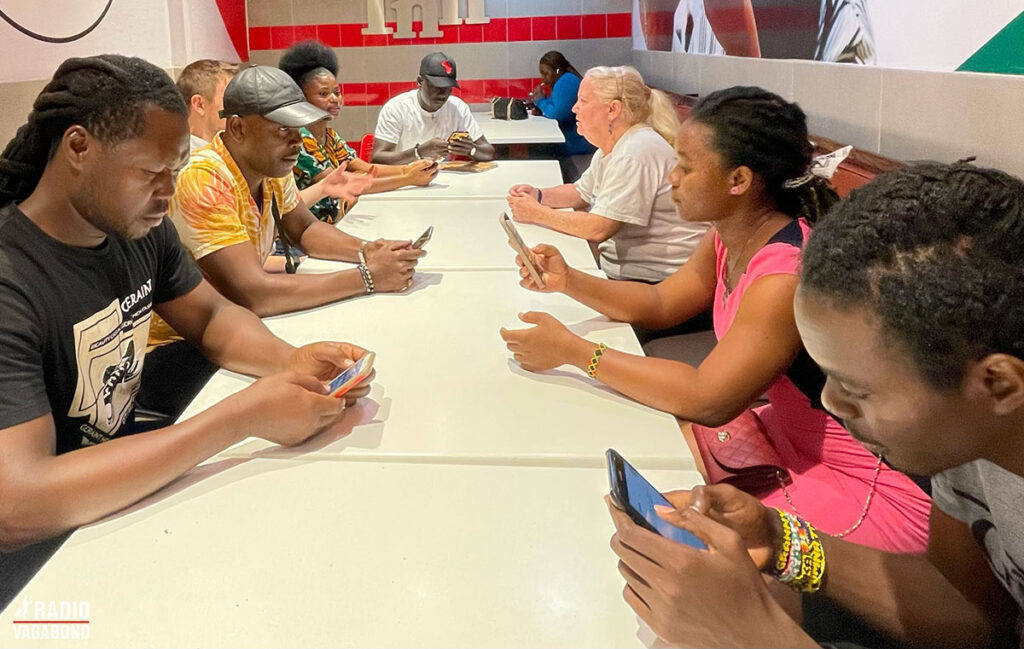
Connections Through Couchsurfing
On one of our last nights in Accra, Cynthia and I met up with more than 30 people from the Couchsurfing community.
Now, this wasn’t a Couchsurfing stay – no sleeping on sofas or extra beds. It was just about meeting up, sharing stories, and making connections with people who love the spirit of travel.
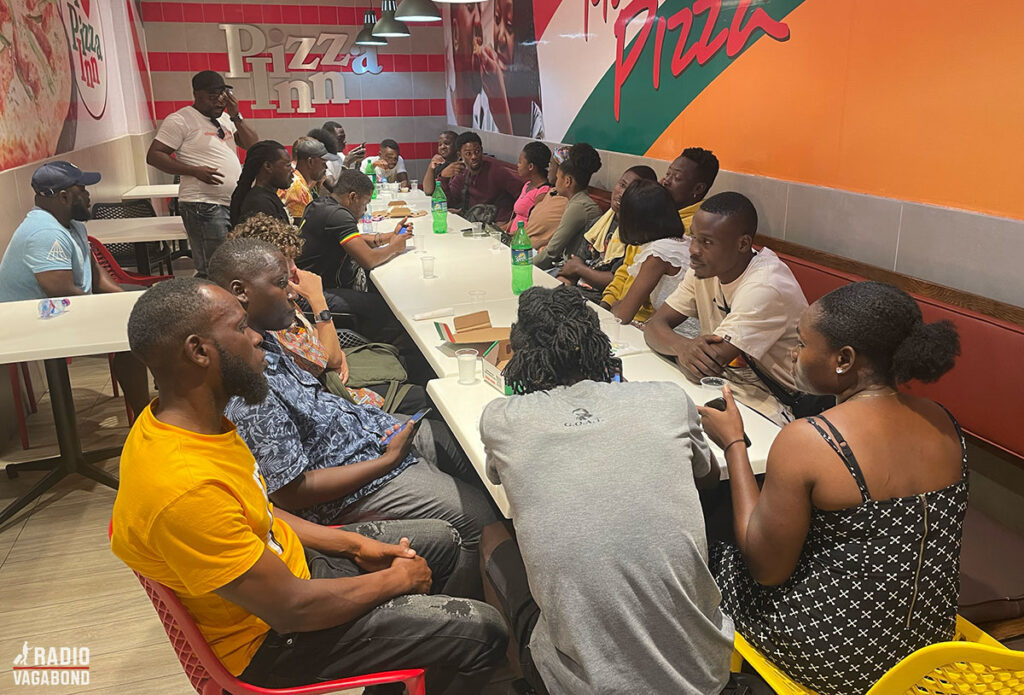
We met at a shopping mall, sat down, and talked about everything from Ghanaian life to global adventures.
The people we met were so welcoming, and it was another reminder of how easy it is to make new friends when you put yourself out there.
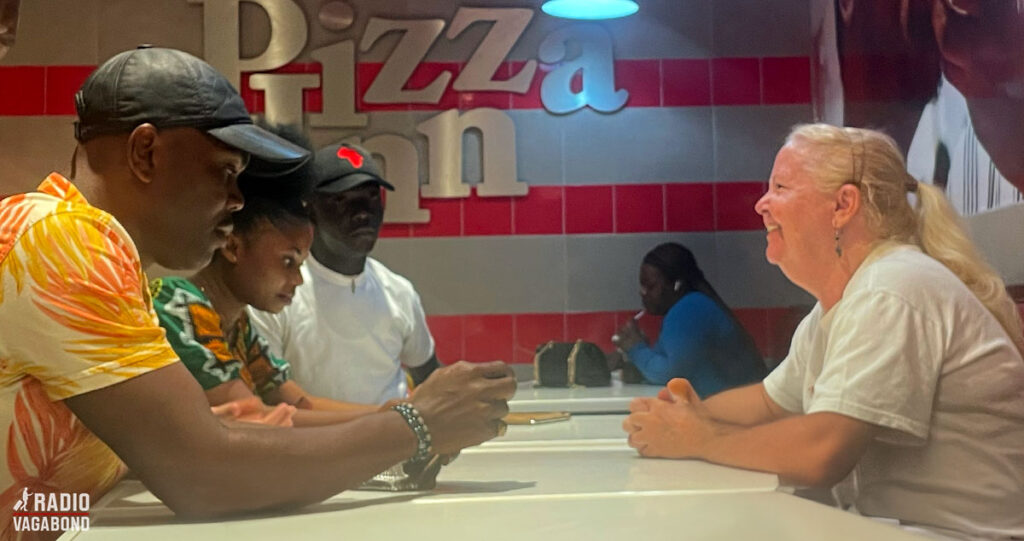
Cynthia is actually an official Couchsurfing Ambassador, and she often organizes meetups like this when we travel together. It’s an amazing way to experience a place more deeply – beyond the tourist sights and into the real heart of local life.
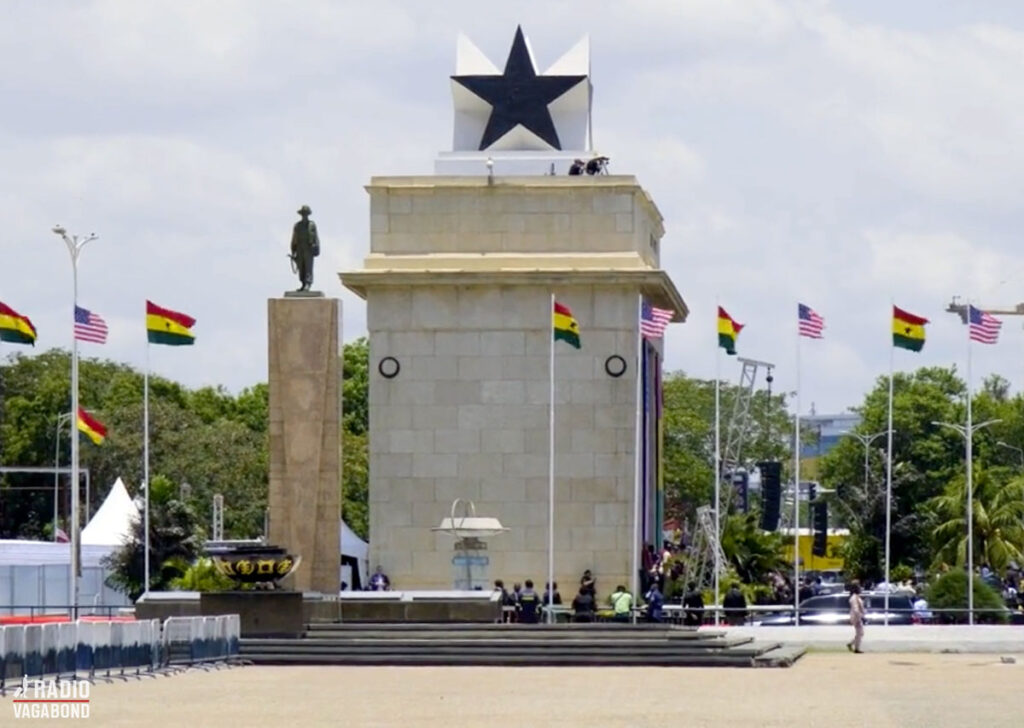
What’s Next:
Goodbye Accra, Hello Tamale
This wraps up my time in Accra – at least for now. It’s been a whirlwind of music, unexpected adventures, deep conversations, and a lot of laughter. But now it’s time to leave the capital behind.
In the next episodes, Cynthia and I will be heading north to Tamale – and from there, traveling overland through Mole National Park (where elephants roam free), through Kumasi, and down to Cape Coast. We’re going to see a very different side of Ghana: villages, safaris, and some unforgettable moments.
So stick around – the adventure in Ghana is just getting started. My name is Palle Bo, and I gotta keep moving.
I WOULD LIKE TO HEAR FROM YOU!
Please tell me where are you and what are you doing as you listen to this episode? You can either send me an email on listener@theradiovagabond.com, go to TheRadioVagabond.com/Contact or send me a voice message by clicking on the banner.
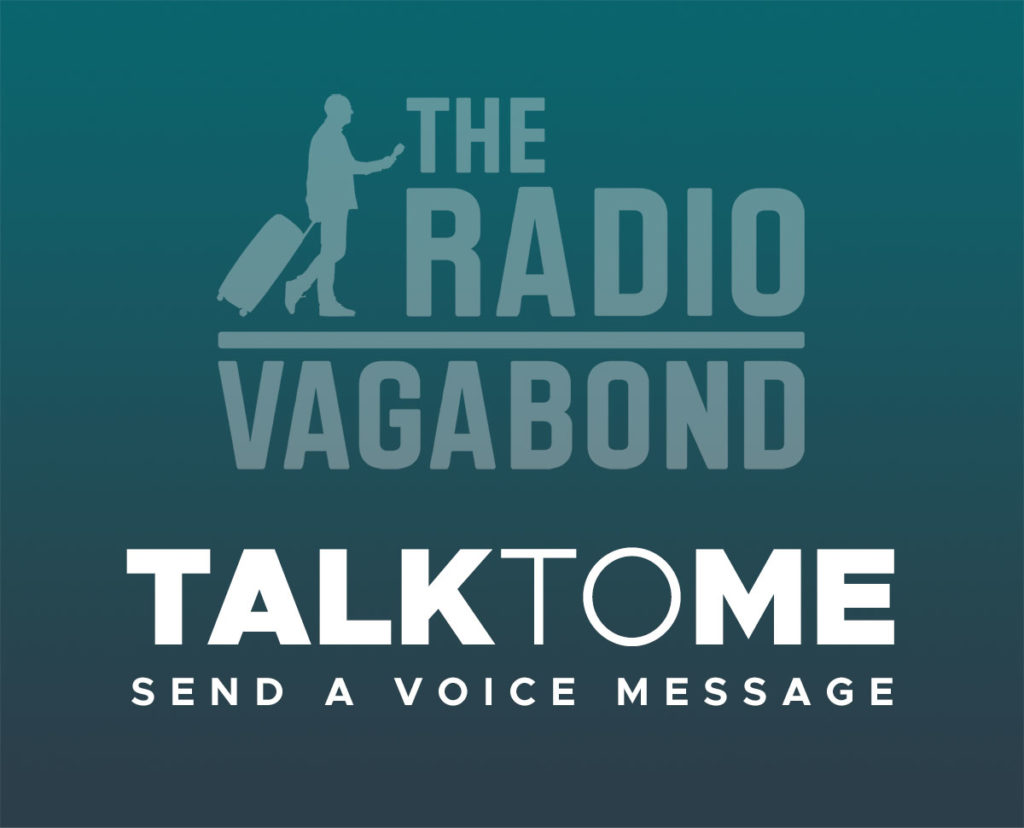
Either way, I would love to hear from you. It’s so nice to know who’s on the other end of this.
SPONSOR
A special thank you to my sponsor, Hotels25.com, who always provide me with the best, most affordable accommodation wherever I am in the world.
Hotels25 scans for prices on the biggest and best travel sites (like Booking.com, Hotels.com, Agoda and Expedia) in seconds. It finds deals from across the web and put them in one place. Then you just compare your options for the same hotel, apartment, hostel or home and choose where you book.
When you book with Hotels25, you get access to 5,000,000 hotel deals. And it’s “best price guaranteed.”
PRODUCED BY RADIOGURU
The Radio Vagabond is produced by RadioGuru. Reach out if you need help with your podcast.
